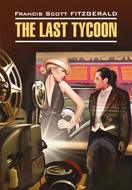Kitobni o'qish: «The War of the Worlds / Война миров. Книга для чтения на английском языке»
Подготовка текста, комментарии и словарь Е. Г. Тигонен
© КАРО, 2010
Об авторе
Английский писатель-фантаст Герберт Джордж Уэллс (1866–1946) родился в семье садовника и горничной, служивших в богатом поместье, позже они стали владеть небольшой лавочкой фарфоровых изделий. Но торговля шла плохо, и семья в основном жила на деньги, которые отец зарабатывал, играя в крикет.
Образование Уэллс получил в классической школе Мидхёрст и в Кингз-колледже Лондонского университета. После ученичества у торговца мануфактурой и работы в аптеке побывал учителем в школе, преподавателем точных наук и биологии. В 1893 году профессионально занялся журналистикой.
В 1895 году вышел в свет первый роман Уэллса – «Машина времени». В нем рассказывалось о путешествии изобретателя в отдаленное будущее. Затем последовали «Остров доктора Моро» (1896), «Человек-невидимка» (1897), «Война миров» (1898), «Первые люди на Луне» (1901). Писатель снискал славу самого значительного экспериментатора в жанре научной фантастики. Впоследствии в произведениях подобного рода, например в романе «Мир освобожденный» (1914), он сочетал научную достоверность с политическими прогнозами о грядущем всемирном государстве. Тезис о науке, способной создать всемирное государство, в котором человек сможет разумно пользоваться своими изобретениями, с воодушевлением повторяется во всех книгах Уэллса, однако его оптимизм, до той поры безграничный, сокрушила Вторая мировая война, после чего он дал волю отчаянию и в книге «Разум на краю своей натянутой узды» (1945) предсказал вымирание человечества.
Уэллс жил в Лондоне и на Ривьере, часто выступал с лекциями и много путешествовал, был дважды женат. Умер в Лондоне 13 августа 1946 года. Согласно завещанию, после кремации его сыновья Джордж Филип и Фрэнк Ричард развеяли прах отца над Ла-Маншем.
* * *
«Война миров» – один из первых научно-фантастических романов, в котором рассказывается о нападении на Землю пришельцев с Марса. Роман был неоднократно экранизирован и инсценирован, в том числе и на радио. В 30-е годы приемник стоял в каждом американском доме, поэтому нет ничего удивительного в том, что нация узнала о постигшем ее бедствии именно из радионовостей. Воскресным вечером американцы включили канал CBS. Из сообщений можно было заключить, что на восточном побережье происходит нечто ужасное. Диктор ровным голосом сообщил о высадке марсиан. В городе началась паника, а режиссер Орсон Уэллс и актеры его «Меркьюри-театра» не подозревали, что происходит на улице. Они никого не собирались пугать, но слушатели поверили, что на Америку действительно напали марсиане.
Потом газеты долго ругали режиссера за безответственность, а к CBS было предъявлено множество исков о преступной халатности. Но страсти быстро улеглись – американцам, видимо, стыдно было вспоминать о своей доверчивости.
Book One
The Coming of the Martians
But who shall dwell in these worlds if they be inhabited?… Are we or they Lords of the World?… And how are all things made for man?
Kepler1 (quoted in The Anatomy of Melancholy)
Chapter One
The Eve of the War
No one would have believed in the last years of the nineteenth century that this world was being watched keenly and closely by intelligences greater than man’s and yet as mortal as his own; that as men busied themselves about their various concerns they were scrutinised and studied, perhaps almost as narrowly as a man with a microscope might scrutinise the transient creatures that swarm and multiply in a drop of water. With infinite complacency men went to and fro over this globe about their little affairs, serene in their assurance of their empire over matter. It is possible that the infusoria under the microscope do the same. No one gave a thought to the older worlds of space as sources of human danger, or thought of them only to dismiss the idea of life upon them as impossible or improbable. It is curious to recall some of the mental habits of those departed days. At most terrestrial men fancied there might be other men upon Mars, perhaps inferior to themselves and ready to welcome a missionary enterprise. Yet across the gulf of space, minds that are to our minds as ours are to those of the beasts that perish, intellects vast and cool and unsympathetic, regarded this earth with envious eyes, and slowly and surely drew their plans against us. And early in the twentieth century came the great disillusionment.
The planet Mars, I scarcely need remind the reader, revolves about the sun at a mean distance of 140,000,000 miles, and the light and heat it receives from the sun is barely half of that received by this world. It must be, if the nebular hypothesis has any truth, older than our world; and long before this earth ceased to be molten, life upon its surface must have begun its course. The fact that it is scarcely one seventh of the volume of the earth must have accelerated its cooling to the temperature at which life could begin. It has air and water and all that is necessary for the support of animated existence.
Yet so vain is man, and so blinded by his vanity, that no writer, up to the very end of the nineteenth century, expressed any idea that intelligent life might have developed there far, or indeed at all, beyond its earthly level. Nor was it generally understood that since Mars is older than our earth, with scarcely a quarter of the superficial area and remoter from the sun, it necessarily follows that it is not only more distant from time’s beginning but nearer its end.
The secular cooling that must someday overtake our planet has already gone far indeed with our neighbour. Its physical condition is still largely a mystery, but we know now that even in its equatorial region the midday temperature barely approaches that of our coldest winter. Its air is much more attenuated than ours, its oceans have shrunk until they cover but a third of its surface, and as its slow seasons change huge snowcaps gather and melt about either pole and periodically inundate its temperate zones. That last stage of exhaustion, which to us is still incredibly remote, has become a present-day problem2 for the inhabitants of Mars. The immediate pressure of necessity has brightened their intellects, enlarged their powers, and hardened their hearts. And looking across space with instruments, and intelligences such as we have scarcely dreamed of, they see, at its nearest distance only 35,000,000 of miles sunward of them, a morning star of hope, our own warmer planet, green with vegetation and grey with water, with a cloudy atmosphere eloquent of fertility, with glimpses through its drifting cloud wisps of broad stretches of populous country and narrow, navy-crowded seas.
And we men, the creatures who inhabit this earth, must be to them at least as alien and lowly as are the monkeys and lemurs to us. The intellectual side of man already admits that life is an incessant struggle for existence, and it would seem that this too is the belief of the minds upon Mars. Their world is far gone in its cooling and this world is still crowded with life, but crowded only with what they regard as inferior animals. To carry warfare sunward is, indeed, their only escape from the destruction that, generation after generation, creeps upon them.
And before we judge of them too harshly we must remember what ruthless and utter destruction our own species has wrought, not only upon animals, such as the vanished bison and the dodo3, but upon its inferior races. The Tasmanians4, in spite of their human likeness, were entirely swept out of existence in a war of extermination waged by European immigrants, in the space of fifty years. Are we such apostles of mercy as to complain if the Martians warred in the same spirit?
The Martians seem to have calculated their descent with amazing subtlety – their mathematical learning is evidently far in excess of ours – and to have carried out their preparations with a well-nigh perfect unanimity. Had our instruments permitted it, we might have seen the gathering trouble far back in the nineteenth century. Men like Schiaparelli5 watched the red planet – it is odd, by-the-bye, that for countless centuries Mars has been the star of war – but failed to interpret the fluctuating appearances of the markings they mapped so well. All that time the Martians must have been getting ready.
During the opposition of 1894 a great light was seen on the illuminated part of the disk, first at the Lick Observatory, then by Perrotin of Nice, and then by other observers. English readers heard of it first in the issue of Nature dated August 2. I am inclined to think that this blaze may have been the casting of the huge gun, in the vast pit sunk into their planet, from which their shots were fired at us. Peculiar markings, as yet unexplained, were seen near the site of that outbreak during the next two oppositions.
The storm burst upon us six years ago now. As Mars approached opposition, Lavelle of Java set the wires of the astronomical exchange palpitating with the amazing intelligence of a huge outbreak of incandescent gas upon the planet. It had occurred towards midnight of the twelfth; and the spectroscope, to which he had at once resorted, indicated a mass of flaming gas, chiefly hydrogen, moving with an enormous velocity towards this earth. This jet of fire had become invisible about a quarter past twelve. He compared it to a colossal puff of flame suddenly and violently squirted out of the planet, “as flaming gases rushed out of a gun.”
A singularly appropriate phrase it proved. Yet the next day there was nothing of this in the papers except a little note in the Daily Telegraph, and the world went in ignorance of one of the gravest dangers that ever threatened the human race. I might not have heard of the eruption at all had I not met Ogilvy, the well-known astronomer, at Ottershaw. He was immensely excited at the news, and in the excess of his feelings invited me up to take a turn with him6 that night in a scrutiny of the red planet.
In spite of all that has happened since, I still remember that vigil very distinctly: the black and silent observatory, the shadowed lantern throwing a feeble glow upon the floor in the corner, the steady ticking of the clockwork of the telescope, the little slit in the roof – an oblong profundity with the stardust streaked across it. Ogilvy moved about, invisible but audible. Looking through the telescope, one saw a circle of deep blue and the little round planet swimming in the field. It seemed such a little thing, so bright and small and still, faintly marked with transverse stripes, and slightly flattened from the perfect round. But so little it was, so silvery warm – a pin’s-head of light! It was as if it quivered, but really this was the telescope vibrating with the activity of the clockwork that kept the planet in view.
As I watched, the planet seemed to grow larger and smaller and to advance and recede, but that was simply that my eye was tired. Forty millions of miles it was from us – more than forty millions of miles of void. Few people realise the immensity of vacancy in which the dust of the material universe swims.
Near it in the field, I remember, were three faint points of light, three telescopic stars infinitely remote, and all around it was the unfathomable darkness of empty space. You know how that blackness looks on a frosty starlight night. In a telescope it seems far profounder. And invisible to me because it was so remote and small, flying swiftly and steadily towards me across that incredible distance, drawing nearer every minute by so many thousands of miles, came the Thing they were sending us, the Thing that was to bring so much struggle and calamity and death to the earth. I never dreamed of it then as I watched; no one on earth dreamed of that unerring missile.
That night, too, there was another jetting out of gas from the distant planet. I saw it. A reddish flash at the edge, the slightest projection of the outline just as the chronometer struck midnight; and at that I told Ogilvy and he took my place. The night was warm and I was thirsty, and I went stretching my legs clumsily and feeling my way in the darkness, to the little table where the siphon stood, while Ogilvy exclaimed at the streamer of gas that came out towards us.
That night another invisible missile started on its way to the earth7 from Mars, just a second or so under twenty-four hours after the first one. I remember how I sat on the table there in the blackness, with patches of green and crimson swimming before my eyes. I wished I had a light to smoke by, little suspecting the meaning of the minute gleam I had seen and all that it would presently bring me. Ogilvy watched till one, and then gave it up; and we lit the lantern and walked over to his house. Down below in the darkness were Ottershaw and Chertsey and all their hundreds of people, sleeping in peace.
He was full of speculation that night about the condition of Mars, and scoffed at the vulgar idea of its having inhabitants who were signalling us. His idea was that meteorites might be falling in a heavy shower upon the planet, or that a huge volcanic explosion was in progress. He pointed out to me how unlikely it was that organic evolution had taken the same direction in the two adjacent planets.
“The chances against anything manlike on Mars are a million to one,” he said.
Hundreds of observers saw the flame that night and the night after about midnight, and again the night after; and so for ten nights, a flame each night. Why the shots ceased after the tenth no one on earth has attempted to explain. It may be the gases of the firing caused the Martians inconvenience. Dense clouds of smoke or dust, visible through a powerful telescope on earth as little grey, fluctuating patches, spread through the clearness of the planet’s atmosphere and obscured its more familiar features.
Even the daily papers woke up to the disturbances at last, and popular notes appeared here, there, and everywhere8 concerning the volcanoes upon Mars. The seriocomic periodical Punch, I remember, made a happy use of it in the political cartoon. And, all unsuspected, those missiles the Martians had fired at us drew earthward, rushing now at a pace of many miles a second through the empty gulf of space, hour by hour and day by day, nearer and nearer. It seems to me now almost incredibly wonderful that, with that swift fate hanging over us, men could go about their petty concerns9 as they did. I remember how jubilant Markham was at securing a new photograph of the planet for the illustrated paper he edited in those days. People in these latter times scarcely realise the abundance and enterprise of our nineteenth-century papers. For my own part10, I was much occupied in learning to ride the bicycle, and busy upon a series of papers discussing the probable developments of moral ideas as civilization progressed.
One night (the first missile then could scarcely have been 10,000,000 miles away) I went for a walk with my wife. It was starlight and I explained the Signs of the Zodiac to her, and pointed out Mars, a bright dot of light creeping zenithward, towards which so many telescopes were pointed. It was a warm night. Coming home, a party of excursionists from Chertsey or Isleworth passed us singing and playing music. There were lights in the upper windows of the houses as the people went to bed. From the railway station in the distance came the sound of shunting trains, ringing and rumbling, softened almost into melody by the distance. My wife pointed out to me the brightness of the red, green, and yellow signal lights hanging in a framework against the sky. It seemed so safe and tranquil.
Chapter Two
The Falling Star
Then came the night of the first falling star. It was seen early in the morning, rushing over Winchester eastward, a line of flame high in the atmosphere. Hundreds must have seen it, and taken it for an ordinary falling star. Albin described it as leaving a greenish streak behind it that glowed for some seconds. Denning, our greatest authority on meteorites, stated that the height of its first appearance was about ninety or one hundred miles. It seemed to him that it fell to earth about one hundred miles east of him.
I was at home at that hour and writing in my study; and although my French windows11 face towards Ottershaw and the blind was up (for I loved in those days to look up at the night sky), I saw nothing of it. Yet this strangest of all things that ever came to earth from outer space must have fallen while I was sitting there, visible to me had I only looked up as it passed. Some of those who saw its flight say it travelled with a hissing sound. I myself heard nothing of that. Many people in Berkshire, Surrey, and Middlesex must have seen the fall of it, and, at most, have thought that another meteorite had descended. No one seems to have troubled to look for the fallen mass that night.
But very early in the morning poor Ogilvy, who had seen the shooting star and who was persuaded that a meteorite lay somewhere on the common between Horsell, Ottershaw, and Woking, rose early with the idea of finding it. Find it he did, soon after dawn, and not far from the sand pits. An enormous hole had been made by the impact of the projectile, and the sand and gravel had been flung violently in every direction over the heath, forming heaps visible a mile and a half away. The heather was on fire eastward, and a thin blue smoke rose against the dawn.
The Thing itself lay almost entirely buried in sand, amidst the scattered splinters of a fir-tree it had shivered to fragments in its descent. The uncovered part had the appearance of a huge cylinder, caked over and its outline softened by a thick scaly dun-coloured incrustation. It had a diameter of about thirty yards. He approached the mass, surprised at the size and more so at the shape, since most meteorites are rounded more or less completely. It was, however, still so hot from its flight through the air as to forbid his near approach. A stirring noise within its cylinder he ascribed to the unequal cooling of its surface12; for at that time it had not occurred to him that it might be hollow.
He remained standing at the edge of the pit that the Thing had made for itself, staring at its strange appearance, astonished chiefly at its unusual shape and colour, and dimly perceiving even then some evidence of design in its arrival. The early morning was wonderfully still, and the sun, just clearing the pine-trees towards Weybridge, was already warm. He did not remember hearing any birds that morning, there was certainly no breeze stirring, and the only sounds were the faint movements from within the cindery cylinder. He was all alone on the common.
Then suddenly he noticed with a start that some of the grey clinker, the ashy incrustation that covered the meteorite, was falling off the circular edge of the end. It was dropping off in flakes and raining down upon the sand. A large piece suddenly came off and fell with a sharp noise that brought his heart into his mouth13.
For a minute he scarcely realized what this meant, and, although the heat was excessive, he clambered down into the pit close to the bulk to see the Thing more clearly. He fancied even then that the cooling of the body might account for this, but what disturbed that idea was the fact that the ash was falling only from the end of the cylinder.
And then he perceived that, very slowly, the circular top of the cylinder was rotating on its body. It was such a gradual movement that he discovered it only through noticing that a black mark that had been near him five minutes ago was now at the other side of the circumference. Even then he scarcely understood what this indicated, until he heard a muffled grating sound and saw the black mark jerk forward an inch or so. Then the thing came upon him in a flash. The cylinder was artificial – hollow – with an end that screwed out! Something within the cylinder was unscrewing the top!
“Good heavens!” said Ogilvy. “There’s a man in it – men in it! Half roasted to death! Trying to escape!”
At once, with a quick mental leap, he linked the Thing with the flash upon Mars.
The thought of the confined creature was so dreadful to him that he forgot the heat and went forward to the cylinder to help turn. But luckily the dull radiation arrested him before he could burn his hands on the still-glowing metal. At that he stood irresolute for a moment, then turned, scrambled out of the pit, and set off running wildly into Woking. The time then must have been somewhere about six o’clock. He met a waggoner and tried to make him understand, but the tale he told and his appearance were so wild – his hat had fallen off in the pit – that the man simply drove on. He was equally unsuccessful with the potman who was just unlocking the doors of the public-house by Horsell Bridge. The fellow thought he was a lunatic at large14 and made an unsuccessful attempt to shut him into the taproom. That sobered him a little; and when he saw Henderson, the London journalist, in his garden, he called over the palings and made himself understood.
“Henderson,” he called, “you saw that shooting star last night?”
“Well?” said Henderson.
“It’s out on Horsell Common now.”
“Good Lord!” said Henderson. “Fallen meteorite! That’s good.”
“But it’s something more than a meteorite. It’s a cylinder – an artificial cylinder, man! And there’s something inside.”
Henderson stood up with his spade in his hand.
“What’s that?” he said. He was deaf in one ear15.
Ogilvy told him all that he had seen. Henderson was a minute or so taking it in. Then he dropped his spade, snatched up his jacket, and came out into the road. The two men hurried back at once to the common, and found the cylinder still lying in the same position. But now the sounds inside had ceased, and a thin circle of bright metal showed between the top and the body of the cylinder. Air was either entering or escaping at the rim with a thin, sizzling sound.
They listened, rapped on the scaly burnt metal with a stick, and, meeting with no response16, they both concluded the man or men inside must be insensible or dead.
Of course the two were quite unable to do anything. They shouted consolation and promises, and went off back to the town again to get help. One can imagine them, covered with sand, excited and disordered, running up the little street in the bright sunlight just as the shop folks were taking down their shutters and people were opening their bedroom windows. Henderson went into the railway station at once, in order to telegraph the news to London. The newspaper articles had prepared men’s minds for the reception of the idea.
By eight o’clock a number of boys and unemployed men had already started for the common to see the “dead men from Mars.” That was the form the story took. I heard of it first from my newspaper boy about a quarter to nine when I went out to get my Daily Chronicle. I was naturally startled, and lost no time in going out and across the Ottershaw bridge to the sand pits.
Kepler – Иоганн Кеплер (1571–1630), немецкий астроном, один из творцов астрономии нового времени, открыл законы движения планет, заложил основы теории затмений, изобрел телескоп, в котором объектив и окуляр – двояковыпуклые линзы
[Закрыть]
a present-day problem – (зд.) животрепещущие (насущные) проблемы
[Закрыть]
dodo – дронт, вымершая в XVII–XVIII вв. птица
[Закрыть]
Tasmanians – тасманийцы, коренное население острова Тасмания, в XIX в. истреблены английскими колонизаторами
[Закрыть]
Schiaparelli – Джованни Вирджинио Скиапарелли (1835–1910), итальянский астроном, в 1877 г. обнаружил на Марсе сеть тонких линий, так называемых каналов
[Закрыть]
to take a turn with him – (зд.) вместе понаблюдать
[Закрыть]
started on its way to the earth – (разг.) начал свое движение к земле
[Закрыть]
here, there, and everywhere – (разг.) повсеместно
[Закрыть]
could go about their petty concerns – (разг.) могут заниматься такими пустяками
[Закрыть]
For my own part – (разг.) Что же касается меня
[Закрыть]
French windows – застекленные от пола до потолка двери, как правило, выходящие в сад
[Закрыть]
unequal cooling off its surface – (зд.) неравномерное остывание поверхности
[Закрыть]
brought his heart into his mouth – (разг.) напугал его до смерти
[Закрыть]
a lunatic at large – (разг.) сбежавший из лечебницы псих
[Закрыть]
was deaf in one ear – (разг.) был туговат на одно ухо
[Закрыть]
meeting with no response – (устар.) не дождавшись ответа
[Закрыть]








